Almost A God: Noise Rock In The Landscape

“Noise Rock” is a term for a musical subgenre of alternative rock (or “college” rock), aurally similar to dodecaphony and grunge, that existed between the years 1984 and (roughly) 2002. It was characterized by its heavy use of ironic despair, that verged on nihilism, and unfortunate bass tone. Other characteristics common (if decidedly not uniform) of the genre were; “electric” blues song structure, blues social signifiers (occasionally incommensurate with the noise rock artist’s social class and background), and a guitar sound that drew from ‘70s funk music and the somewhat nebulous genre known as “post-punk.” In notable contrast with the subcultures that born it (punk, hardcore, etc), noise rock was, for the most part, apolitical (“apolitical” as in “genuinly indifferent to the body politic,” as opposed to black metal’s newer use of the term to indicate a musician’s previous membership in the National Socialist Workers Party). Its practitioners were often performatively emotionally and/or physically unwell. Noise Rock was an urban phenomenon, with most of its prominent artists coming from (or, more likely, or settling in) cities like, in particular, Minneapolis, New York City, Chicago, Osaka, and Austin. Migration from the rural/suburban to the urban was an underlying tension throughout noise rock’s timespan, exhibited through either the demi-celebration of rural traditions/hatreds, or through a magnified city slicker’s contempt for outsiders and, indeed, tourists of any kind. Noise rock positioned itself as an art in opposition to both the small towns it fled from and to the cities it ended up in. Like punk and hardcore and the noir crime films that informed so much of noise rock’s ethos and aesthetic, noise rock reveled in what it claimed to despise. At its worst, the genre was dumb, grunting hard rock, drained of sexuality, and unduly proud of its own grubbiness. At its best, it was…dumb, grunting hard rock, drained of sexuality, and unduly proud of its own grubbiness. That being said, noise rock had (and has) its charms. Or, as the aphorism (incorrectly credited to Winston Churchill) about democracy goes: noise rock was the worst form of alternative rock, except for all the others.
Or even more apt, in the words of David Yow; “He’s a nice guy. I like him just fine. But he’s a mouth breather.”
OR, even more apt, as Shannon Selberg sings in “Almost a God,” a Cows song featured on an early volume of the Tom Hazelmyer curated compilations that established noise rock’s place in a certain kind of cultural memory…
“Yabba dabba doo
I'm goin' yabba dabba you!
You know not where I drive
To be almost a god”
Every essay about noise rock must begin with caveats, because people are cowards. You would think that interminable time spent pretending that terms like “post-punk,” “power violence,” “vaporwave,” or “hyperpop” might ever hold an ounce of meaning to anyone who has truly known God’s love would have taught erstwhile noise rock historians not to sweat the expansive meaninglessness of the term. But, you know, I try not to judge.
A problem some critics have had, while doing the critic’s work of reifying canon and attaching hierarchical value to art, is that the genre of noise rock is actually pretty small and tidy, if the critic knows where to cut. Most critics however, contractually obligated to mention Velvet Underground and spiritually predisposed to give a fuck about Sonic Youth, find themselves overwhelmed by the abundance of history, and the fat of “historical accuracy.”
Not me tho. For myself, noise rock categorization is as easy as noise rock pie. Simply put, noise rock is two things, and two things only:
- Bands that sound like The Jesus Lizard and/or are The Jesus Lizard.
- whoever the opening band is.
That’s it. (Well, there’s the third thing, pertaining to time, but we’ll get to that in a bit. For now, I want to keep those who haven’t already closed this tab and retreated to the safety of their Chrome LPs on my side.) Every other definition of noise rock, outside of “Jesus Lizard & Pals,” is either an attempt to justify a genre that doesn’t really deserve or need justification or, worse, an attempt to inflate the definition so that the critic and/or fan can continue to pretend that their favorite kind of music wasn’t largely made by white, cis, art school junkies, most of whom moved to the Big City from Corn Syrup, Ohio, drove the rents up, made a few of the greatest records of the ass-end of the Twentieth Century, and then died (or moved back to Ohio).
Look, It doesn’t matter if Velvet Underground recorded “Sister Ray” or if Sonic Youth coined the term“noise rock” in the first place. Lou Reed’s most noise rock move (“rock” being italicized to stave off cries of “what about Metal Machine Music, maaan” from the infernal noise rock peanut gallery) was Lulu and hardly any critic thanked him for it when he was alive, so we don’t get to use his childhood drug use to justify our existence now. And Sonic Youth is folk rock because they sound like Neil Young if Neil Young sang like he was doing us all a favor just by showing up. Or they’re a jam band. Or they’re one of the great American Rock Bands and Who Knows What My Fucking Problem Is. By most accounts, depending who you ask, one or all of them are nice people. Point is, If Sonic Youth want to be considered noise rock (they don’t) then Kim Gordon is going to have to get in her Northampton time machine and tell her old band’s various engineers and mixers to turn the bass up. Maybe Sonic Youth are noise rock for people who have never rifled through the purse of someone they care about. So: not noise rock.
I’m not even being as contrarian as I’m being. I’m merely pointing out that just about any band given the “noise rock” designation, who doesn’t sound like a bunch of emaciated yahoos in cowboy hats slurring and lead-footing their way through drunken set of Birthday Party covers (or a band one could reasonably expect to open for said yahoos on a CBGBs eight band bill in 1993), could easily and more accurately be called something else. Usually either “No Wave” or “noise pop” or “industrial” or “sludge” or (most often) “grunge” or even “that band that put out that one album on Matador, before Matador got all that Pavement money.” And these are all exceedingly fine things to be! Nothing super great about being noise rock! It sure as shit ain’t as cool as No Wave! But noise rock is as much about what is not as what it is. It’s dressing like a ranch hand when you can’t even keep a pet alive. It’s dressing like you’re in a hardcore band when your contempt for unity is unflinching. It’s doing a 7” for the Sub Pop Singles Club but never getting signed for a full length. It’s having a guitarist and drummer aping the Ashton Brothers and a singer aping Iggy and still only even slightly resembling The Stooges in that you have two dead bass players. I know I said it was simple. But, in the words of Daniel Ash, “simple like a flower/ and that’s a complicated thing.”
By the same token, the noise rock critic isn’t doing Sonny Sharrock or Boredoms any favors by forcing their albums to slum around on the same lists that put “Songs About Fucking” as the Number One record of all time.
OK. Fine. Boredoms are noise rock. I always just called them “experimental” but I suspect I’m in the minority on that one. So they’re noise rock, if that’s important to either them or you. The “whoever the opening band is” qualifier is an obvious hedge that I will continue to use as vigorously (even in the case of Yamantaka Eye’s long running concern, who would be co-headlining at least, depending on the city and venue) as need be. I don’t know if I’ll be able to extend the hedge wide enough to encompass bands like Railroad Jerk, even though they were definitely part of a noise rock “scene,” but I guess we’ll just have to see.
The hedging (not to be confused with a caveat!), whether using multiband bills thrown during CBGBs’ Bronze Era as a guide or just acknowledging the totemic power of The Scene, is pretty important. And not just as a way to squirm out of the rhetorical trou de loup I’ve thrown myself into. Noise rock was as much about presentation (sweatily misanthropic singer, an adherence to “regular joe” aesthetics that was usually less “Actual Contemporary Person With Actual Contemporary Job” than 1950s Kerouac) as it was about Beefheartain drums, squalling guitars, and low ends designed to make whoever was working the sound weep in bitter rage. Accepting this as fact, however, is a dangerous step towards the noise rock diffusion-of-definition I was crying about earlier. It’s not like dressing like one’s dad (if one’s dad was a walking hybrid of lumberjack, disco, Grease one and two, and International Brotherhood of Teamsters anachronisms) was the sole purview of ‘80s and ‘90s noise rockers. Laughing Hyenas looked like Gas Huffer looked like Mudhoney looked like Weezer. The entire rough ten-fifteen year period that could reasonably be considered noise rock’s heyday was a mess of blackrim glasses and dressing appropriately for the January weather in Michigan, all year round. Couple this with the popularization of “in the red” CB-radio-style vocal distortion amongst scumbags from Austin to Atlanta to Avenue A. and back again, and it frankly becomes difficult to say a bunch of blues dirgers like the Lower East Side’s Chrome Cranks or Pussy Galore were noise rock but The Oblivians, a Memphis “garage rock” band who recorded their similarly blues based songs under similar layers of filth and hiss, were not.
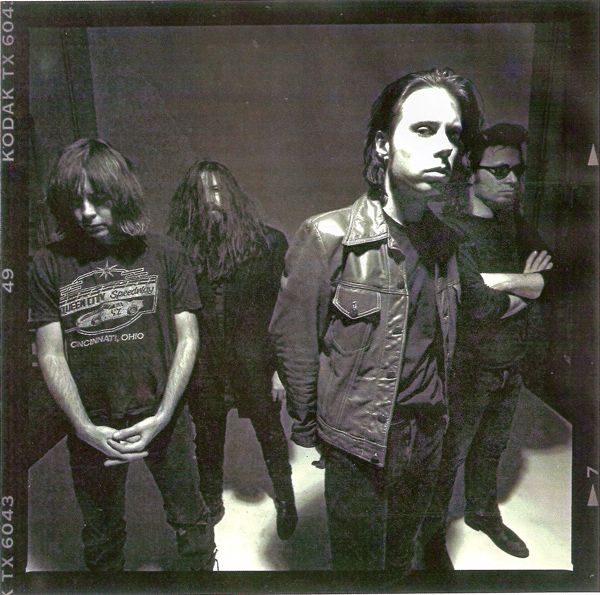

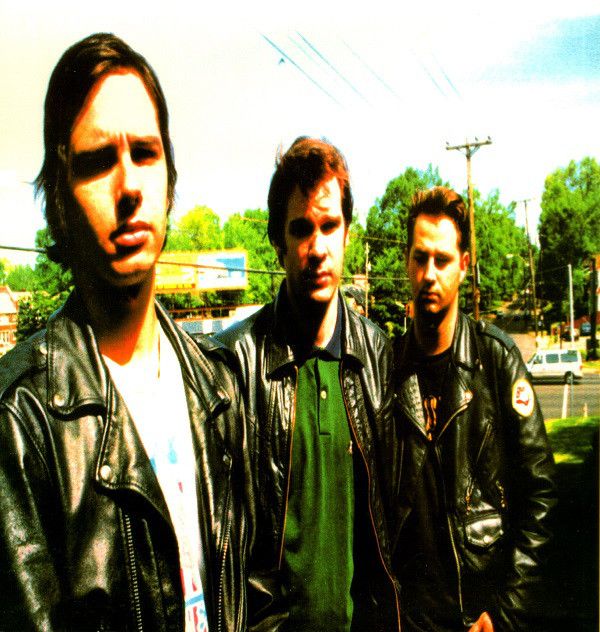
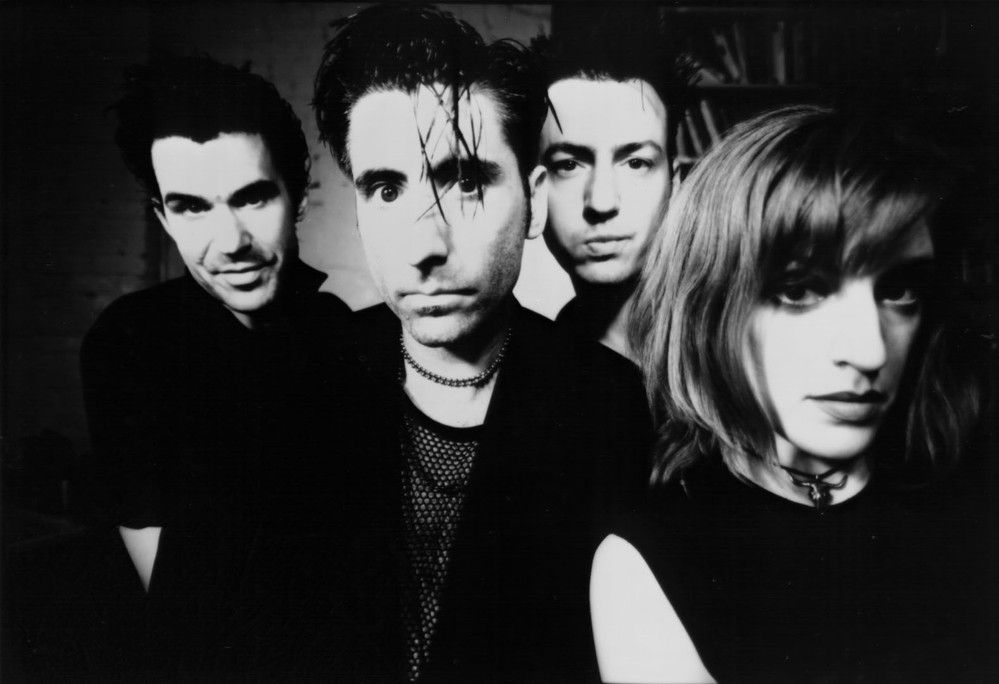
But I want to provide something like a coherent (if highly subjective) beginners guide to noise rock. So there needs to be standards. So, even if I have to rely on methods as haphazard as measuring the tint of the sunglasses worn at night or the comparative obliqueness of references to intravenous drug use in song (or band) names, I take the application of said standards seriously. If, after crunching the numbers, I determine that Railroad Jerk and Chrome Cranks were noise rock but The Oblivains, The Gories, and Raunch Hands were not... I very much doubt anyone from the latter bands will complain.
Along those lines, I’m also applying chronological limitations that the more pedantically minded may take issue with. If it were up to some critics, the story of all modes of rock music would start with Cain slaying Abel and end with Judgement Day (the apocalyptic religious event, not the soundtrack with the Onyx and Biohazard dueting). For the purposes of this essay, noise rock existed in a specific period of time somewhat shorter than the millions upon millions of years Greil Marcus and his ilk would grant punk’s evolution. Noise rock, in its truest incarnation, existed from 1984 until March 23, 2002.
I am not saying that there are no longer noise rock bands. Obviously, this is not the case. There are probably more noise rock bands now than there are dead Presbeterians in Pennsylvania. But, for the most part, rather than sounding like any of the other (*cough* somewhat) diverse bands found on the eleven volumes of the Dope, Guns, and Fucking In Streets compilitations put out by Amphetemine Reptile Records between the years 1988 and 1998, most of these bands just heard Jesus Lizard and thought “that’ll work.” Well, that’s not entirely fair. There are some who sound like mclusky (minus the Motown influence). Well, that’s not entirely fair. Plenty of contemporary noise rock bands are also metal bands whose singer just learned how to turn on their computer. Well, that’s no… you know what? I’m gonna stop. There are still bands that are considered, by whomever might possibly give a shit, to be noise rock. Some of whom play real nice. I’ll list some at the end. But if recent discourses pertaining to ska or emo have taught us anything, it’s that contemplation of revivals or, worse, “waves,” leads only to madness and a wholesale retreat into inane cultural minutia.
It is not just to avoid the mission creep of libertine acceptance of any jerkoff with burly bass tone and an unhappy childhood, while simultaneously dodging the temptation to categorize and subcategorize like we were goddamn hobbyists, that I propose that, for the purposes of this essay, that we stick to a designated Age of Noise Rock ( namely the time when noise rock had both been newly named and had some small degree of cultural relevance, even if it was mainly to SPIN subscribers and Avenue C drug dealers). Noise rock is time specific because it’s not actually, outside of sounding exactly like what it is, that distinctive a type of music. As I said, why the blues-skronk of Pussy Galore and not the blues-hiss of The Oblivians? Why not Mudhoney or any of the other grunge acts whose songs would never translate on MTV Unplugged? Heck, if Halo of Flies, the band of Amphetamine Reptile founder Tom Hazelmyer, was on a garage rock label, say Estrus or Crypt, would it be noise rock? But it was not on Estrus or Crypt, instead it was the flagship band of noise rock’s flagship label. So it’s noise rock.
Truly, noise rock is an infinite funhouse (no stooges reference intended) of tautology.
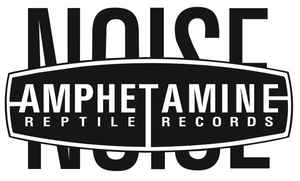
This wavering admission that “noisy rock” doesn’t narrow anything down could be easily switched around to argue in favor of opening up the genre entirely. Why not say anything at least as pummeling and creepy as Cheap Trick’s “Daddy Should Have Stayed In High School” is/was noise rock? To that, I’ll simply say that I’d be open to it if I trusted taste makers even a little. If you have faith in the critical intelligentsia to determine what is and is not noise rock, without the limitations of a set time and place, then let me ask you a simple question: of all these noise rock lists, expansive and inclusive both, limited only by the beginning and end of the known universe or the canon maker’s imagination, how many of these lists include the soul singer and composer Betty Davis? I mean, have you listened to her? Isn’t that rhythm familiar? Did The Birthday Party ever lurch so hard? Did Jesus Lizard? Yeah. See. And I’m saying this outside the obvious influence of larger funk, of Eddie Hazel’s influence on every squealing guitarist who came after him. I’m talking about Betty Davis specifically. Her work in the ‘70s (with Buddy Miles and Sylvester, among others) should be acknowledged as essential proto-noise rock. Hell, the band PIGS (made up of Unsane’s Dave Curren and Player’s Club Jimmy Paradise) covered “If I’m In Luck, I Might Just Get Picked Up,” and all they had to do was turn the guitars up a smidge. But, despite having had decades to get hip, Big Noise Rock Media is still “can you EVEN BELIEVE that ‘Sister Ray’ doesn’t have any bass on it???!??” So fuck it. I’m keeping things tight. The music of noise rock is a slippery eel and critics are all liars, so the outside aesthetic signifiers and rock and rolla scene associations and set years of cultural relevance will be kept as the determining factors of what is and is not noise rock. Therefore, noise rock is noise rock if it was noise rock when noise rock was happening. Everything before is free jazz and everything that came after is heavy metal with an associates degree from RISD.
When “He Was A Big Freak” gets as much online ‘zine love as “Mouth Breather,” we can revisit the subject.
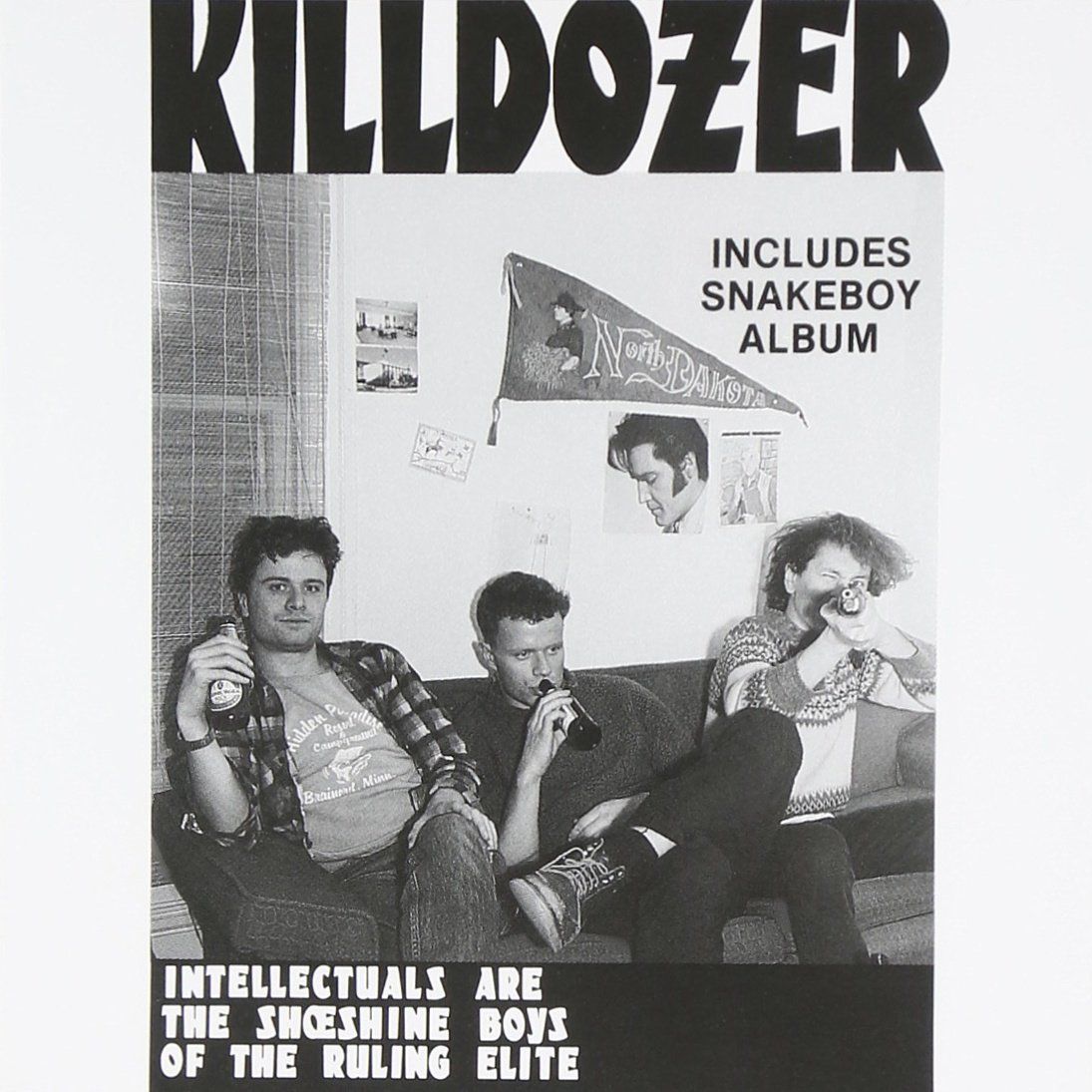
Anyway, The Age of Noise Rock, as determined by science and faith and calculators as big as a whale, officially begins with the 1984 release of Killdozer’s Intellectuals Are The Shoeshine Boys of the Ruling Elite, and officially ends with the night Speedball Baby opened up for the Yeah Yeah Yeahs at Bowery Ballroom and some young savage, presumably wearing stripes and also incapable of grasping a time in NYC when someone could sing about the dangers of riding the F Train, yelled at Speedball Baby, who had, just a few years prior, been the Next Big Thing in neo-noir New York City scumfucker-y, and were now the YYYs’ opening act, and suggested that the former hometown noise heroes “go back to LA.”
(Speedball Baby is admittedly in a noise rock grey area. Their sound was more no wave influenced garage rock. But their lyrical concerns were Pussy Galore-ios and their aesthetic was heroin shiek. And if they never opened for Jesus Lizard it’s probably only because of scheduling conflicts. Also, singer Ron Ward’s later band, Five Dollar Priest, had drumming by Bob Bert, guitars by the Swans’ Norman Westerberg, and a downtown hero by the name of Patrick Holmes playing clarinet, so they were definitely at least post-noise rock. Those averse to history’s fickle truths are encouraged to start their own newsletter.)
If this chronology seems arbitrary, it’s not. If anything, it’s too tidy. Bang to whimper. Dust to Dust. The Sphinx’s riddle, with Killdozer as blushing baby, Speedball Baby as time-stricken man, and you, the reader of this newsletter, as Oedipus, you lucky dog. To frame it in a slightly less glib fashion: noise rock is the music of malaise and cynicism. It can only truly thrive, true to its own heart, during either recession or false recovery. Thus: Reagan’s second term gave birth to noise rock (his first term being more suitable for punk and hardcore), the brief and tedious Bush Sr. administration help noise rock reach its creative apex, and finally, as Clinton rendered even the most obtuse Lubricated Goat lyric redundant and villainous, new money gentrifiers began the process of forcing out our heroic gentrifiers, we saw the beginning of noise rock’s decline. By the time the towers fell, noise rockers had been forced so far out of Manhattan that there were literally thousands of ex-Swans members who didn’t even hear about it till the twelfth.
Some might argue that even a truncated history of noise rock must still start with either the repetitious disco-in-reverse hate beat of Chicago’s Big Black or the repetitious, grinding slurry of San Francisco's Flipper. But those people would be wrong. Steve Albini’s novel melding of asshole persona to asshole guitars is unquestionably important, but it’s also arguable that his influence on the guitar rock landscape, as musician and producer, under or above ground, is so vast that it gets a little boring to try to quantify. I mean, when asked who their favorite character in the Bible is, what kind of dork says “God”? Big Black’s 1982 Lungs EP certainly informed noise rock’s oft-revisited template of transcribing the imagined lesser works of Flanner O’Connor and setting those tales of small stakes cruelty to whatever notes and drum hits punk and metal had left on the cutting room floor. And Flipper’s “Sex Bomb/Brainwash” single, from the year before, basically set the noise rock template of howl-laughing into the void, over and over and over again (not to mention the proud noise rock tradition of treating hardcore like a dumb joke). Both bands, in imagining a world where Suicide could have guitars and not be Bruce Springstein, gave bands like Killdozer permission to tell their hoi polio stories in a voice supplied by Mel Blanc and backed by hardcore punk’s brutalism, if not pace. But, and I’ll keep pressing this point till the reader kills me, neither Big Black nor Flipper invented noise rock because they were a bunch of other things besides noise rock. (Same goes for the other logical forerunner, Lydia Lunch, who seems quite correctly content to have co-invented No Wave and singularly having invented the New York City In Decline of the imaginations of countless filigree’d art punks worldwide.) No, yeah, all those acts had options outside of noise rock. Not our Killdozer. All Killdozer was and could ever be was Killdozer. Thus, the Age of Noise Rock began.
Look, this is all very scientific, I promise you. As scientific as the smile on Steve Albinis’s face when he himself was just a little baby in his Pasadena creche, dreaming of the day he would move to Chicago and write and sing the official noise rock statement of purpose: “I think I fucked your girlfriend once...Maybe twice, I don't remember/ Then I fucked all your friends' girlfriends/ Now they hate you.”
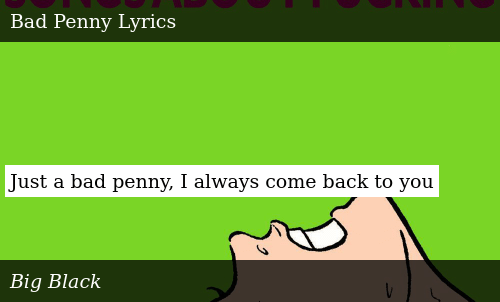
I have determined Noise Rock’s Official Point of falling as the Speedball Baby Heckling show as, from that date on, all noise rock bands would be seen as what they then were; anachronisms, cultural blips, throwbacks to a time when you had to leave your house to buy hard drugs and America ate even its white young. From the aughts on, all a noise rock band could hope for was cultural table scraps. Of course the genre had its adherents. There were still occasional shows, in shrinking venues barely able to contain the increasingly compensatorily outsized antics of a rotating roster of David Yow impersonators. And there were some bright lights, bands and labels (even if not all exactly my taste) mining what was left of the 1990s and managing not to embarrass themselves; mclusky/Future of The Left, Vaz, PIGS, Clockcleaner (though John Sharkey himself would probably agree that his catalog didn't really come into its own till he left noise rock behind in favor of New Romantic sludge and class war anglophelia), Austerity Program, Pissed Jeans (especially the Lydia Lunch produced album), Pollution, Load Records and Skin Graft and 12XU, Made Out Of Babies, a reunited Cherubs, whatever mess Eric Paul was getting himself into at any given time. And, speaking of which, there was/is always the dayglo noise rock fantasia of Rhode Island, a small Eastern Seaboard state, full of art students and hair, that has historically been kind enough to keep noise rock around, presumably to honor some deathbed request of former Providence mayor Buddy Cianci. Besides that though, aside from maybe an occasional glimpse of a slowly imploding Liars, a pity P4K review ranging from 6.0 to 7.3, or some North 6th Street basement dwellers rehashing old Drive Like Jehu licks, noise rock (as it is defined here) was finished. Until, of course, the All Tomorrow’s Parties Fest, where numerous Amphetamine Reptile luminaries were paid in stepped on cocaine to mug and drool for a monied assortment of t-shirt collectors and Englishmen. When I saw Jesus Lizard play at Kutcher’s Country Club in September of ‘09, David Yow’s stage patter consisted, exclusively, of just saying “Happy 9/11, everybody!” again and again. So I guess the last twenty years weren’t all bad.
Now that we have devoted a novella to determining the times of noise rock (1984-March 23, 2002) and now that we have determined the parameters of noise rock (Heavy, throbbing bass. Scabrous guitars. Surly, sallow cheeked lead singer. The state of having opened for Jesus Lizard and/or sounded like Jesus Lizard and/or were Jesus Lizard. Anachronistic casualwear optional.) we can now, boldly and in a state of blessed certitude, get to the essential work of listmaking. Without further ado, here is a Highly Subjective Admittedly Somewhat New York-centric and Otherwise Accurate Guide to Noise Rock (That I Enjoy) For Beginners (Excepting Big Black, Who Even The Beginner Probably Already Knows About and About Whom The Author Doesn’t Have Much To Say About).
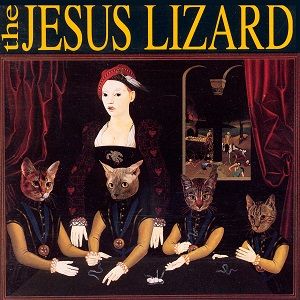
1. The Jesus Lizard Out of the ashes of Austin’s Scratch Acid, The Jesus Lizard are one of those rarest of bands whose influence moves backwards and forwards in time. Despite forming in 1987 and not putting out their first EP (Pure) in 1989, Jesus Lizard inhabit a justifiably outsized acreage of any linkage between the proto-noise rock of the late 1970s and the genre’s realized form in the early ‘90s. David Yow and his crew of swinging, Beefheart-punk, miscreants developed a sound that so adeptly translated the avalanching art school death drive of Nick Cave’s early band,The Birthday Party, into an American trash-dialect that Cave, in even his most John Berryman-addled reverie, could only dream of.
The deejay/co-owner at Ridgwood’s TV Eye, punk/soul historian, and Austin expat, Jonathan Toubin, argues that Jesus Lizard are, in fact, one of the greatest hard rock bands ever. He presumably means this in the vein of Black Sabbath or Vanilla Fudge, whose heft and grunting rhythms preceded Jesus Lizard’s, as opposed to the contemporaneous hair metal that Toubin and Yow both hated throughout their mispent Texan youths. There is probably something to Toubin’s theory, but it doesn’t change the band’s essential, center square enshrinement in noise rock’s happily grubby pantheon.
2. Cows If the noise rock neophyte gets into any band from this essay, I hope it’s Cows. Underappreciated at the time and even more so now, Minneapolis’ Cows’ combination of compactor-scraping riffage and Oblivion Ha Ha “humor” has arguably aged better than any other noise rock band. Cows guitar, as played by Thor Eisentrager, sounded like disintegration loops of Howling Wolf riffs played from a black & white box television found in the woods, while the rest of the band sounded like they were furiously trying to get out of the abandoned refrigerator covered in underbrush and old, wet Playboys just a few feet away. Plus there were horns.
Cows singer, Shannon Selberg, was/is best known for his stage persona. Which is both fair and unfortunate. While he rivalled David Yow in archetypal “crazzzzy” frontman antics, Selberg’s charisma was informed by the wry desolation of his worldview, and communicated as much by a distinctively rising and descending bay as whatever 1000 yard stare he utilized to keep the audience on its toes. I used to work bag check at The Strand with Selberg (who was a union steward in the shipping department but who did bag check because, despite being under the umbrella of the United Auto Workers at the time, it wasn’t a particularly strong union…) and I was starstruck every single time.
All their albums are grand, but 1992’s Cunning Stunts, a bludgeoning clown car of amphetamine blues punk leavened by the occasional moment of soundtrack loveliness, is the most accessible/unfuckwithable.
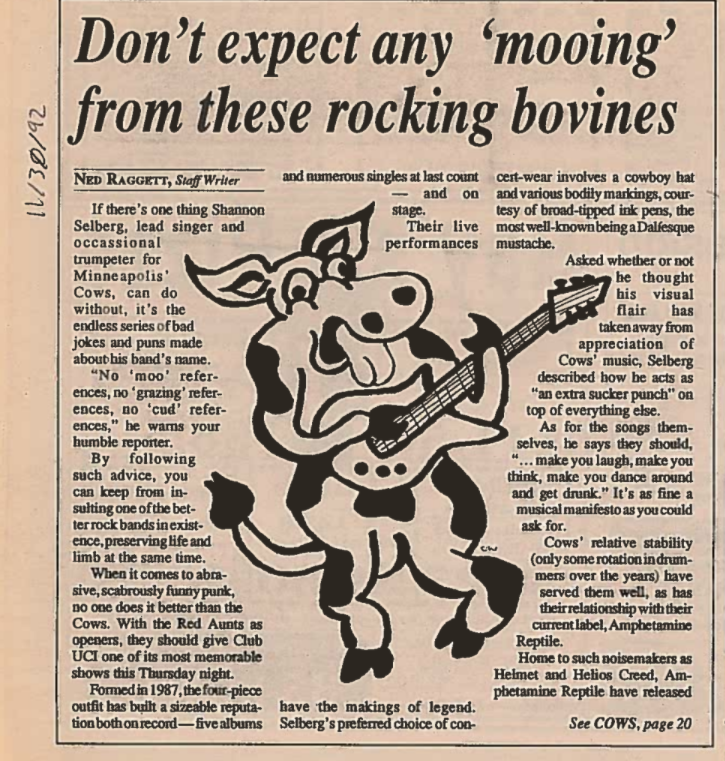
Shannon Selberg issued a blog announcement in 2008, announcing his retirement from music. Without self pity, he still seemed a bit bemused at the lack of attention his post-Cows career had gotten. If he didn’t seem terribly hip to the fact that some of his being overlooked might have had at least a little to do with his (admittedly excellent) follow up band being called “Heroin Sheiks” and their debut album being called “Rape On An Instalment Plan,” I wasn’t going to be the one to point out any changing winds he didn’t already feel on his face.
3. Lubricated Goat/Babes In Toyland/Crunt Lubricated Goat was Stu Spasm’s excellent long running proto-grunge, art rock band. Babes In Toyland was Kat Bjalland, Lori Barbero, and Maureen Herman’s AMAZING long running proto-grunge, art rock band. Both bands featured pronounced, distorted driving bass and tom-heavy drumming, complemented by piercing guitars and the bands’ respective lead singers’ caterwauling rants, liberally peppered with black humor and references to assorted bodily muck. Lubricated Goat is considered a noise rock band. Babes In Toyland are not. This is just dumb. Maureen Herman was introduced to her bandmates through Shannon of the Cows. And just look at this absolutely precious picture of Babes in Toyland and Jesus Lizard.
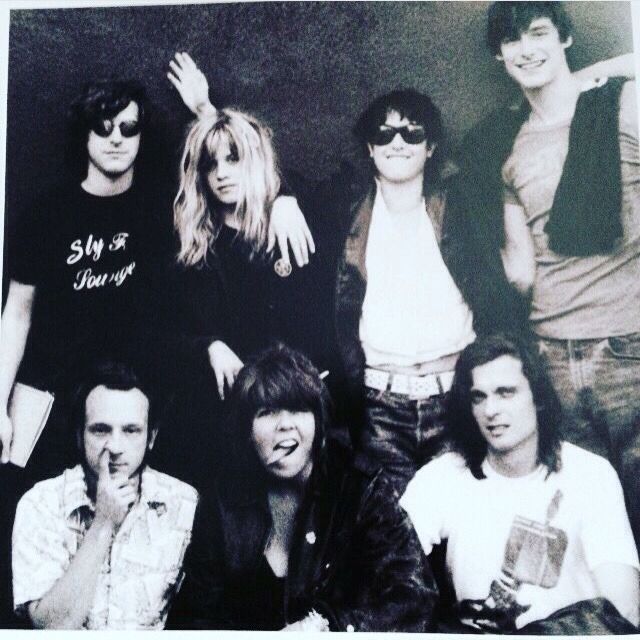
I swear to god, sometimes I’m just embarrassed for whoever decides what bands go where. Anyway, the circle was at least partially squared when Kat Bjalland and Stu Spasm, during the time they were married, had a short lived band together (along with Russel Simins of Jon Spencer Blues Explosion) that was called “Crunt.” Crunt were… fun. But goddamn did they have at least one monumentally butt-punching noise rock rave up called “Black Heart.” Actually they had two. Clearly appreciating how sick “Black Heart” was, they rewrote it as “Unglued” and put it on the same album because what is noise rock if not knowing a good thing when you hear it, and then beating that horse dead, and then beating it some more till it resurrects into a beautiful noise rock pegasus.
4. Surgery When I was just a small child, eagerly devouring all the noise rock content that the glossies saw fit to print, I read an interview with this New York drawl ‘n’ clang outfit where they attempted to give a loose explainer of the New York noise rock scene of the time. They explained that Jon Spencer was the blues noise rock band, Cop Shoot Cop was the industrial noise rock band, Railroad Jerk was the country noise rock band, and they, Surgery, was the Southern rock noise rock band. This did not strike me as even slightly ridiculous at the time. And, even accepting that Surgery’s shtick was essentially primitivist Skynyrd riffs and pseudo-redneck city tuff boy posturing, combined with some Missing Foundation castoff sheet metal hanging from the hi-hat stand, I still think the classifications are kind of cool.
In the wake of Nirvanamania, Surgery signed to a major label and made a peppy, bland album that sounded like Primal Scream if Primal Scream cut their ecstasy with heroin to the point of it just being heroin. A year later, Surgery’s singer, Sean McDonnell died from asthma. I don’t know how Surgery’s early work will sound to people who didn’t hear it when they were fifteen and desperate to be the sort of person that bad shit happened to, but I do know that I can still put on their debut LP, Nationwide, and feel like I’m an adolescent Raylan Givens, drinking rotgut 40-ounces and breaking aspirational hearts in the backwoods hallows of Tompkins Square Park.
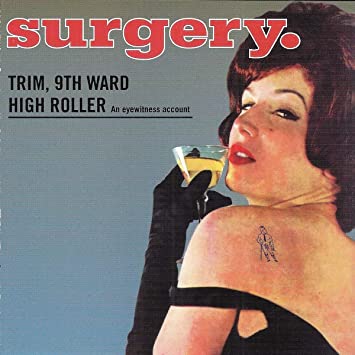
5. Killdozer Wisconsin’s Finest wrote songs about meat and despair, combining Flipper-esque anti-punk tempos with a grinding rock and roll classicism that tempered even their more overt Birthday Party dirge moves with girl group calls and responses. They lurched so hard it felt like they were swinging; getting real, real gone. And then going and going, so cartoonish it was practically cinema verite, further into a funny car uncanny cavestomp valley, til it felt like the feet might fall off their Flintstones-mobile. Truly ridiculous, beautiful music; a sonic jerkdom just this side of grace.
Noise rock started with Killdozer’s debut for the simple reason that neither Sonic Youth, Big Black, Swans, Foetus, nor any of the other go-to candidates, while clearly having the “noise” part down pat, seemed like they particularly enjoyed the medium of “rock.” Whereas Killdozer, from their first album in 1984, up until their reunion shows in the mid-aughts, sounded like the Big Bopper. The moment after impact. Chantilly lace and your pretty face is going to hell. I could keep going, but you get the general idea.
6. UNSANE Wrote about ‘em here.
7. Hammerhead/Vaz More Minneapolis gnarliness, this time via Moorhead, Minnesota. The fact that so many of the original noise rockers came from the midwest sticks, before moving to the Big City, can’t just be written off as part of the natural Warhol/Patti Smith migration of urban hipsters to their natural habitat. Mainly because, unlike the Smiths and Warhols, few noise rockers moved to Babylon in order to be transformed. Even after years of living in whatever the Williamsburg equivalent they settled in, most noise rockers continued to dress (and write lyrics) like they were extras in From Out of The Past. Sure they slicked their hair back in ways that’d never fly back in Mayberry, but the aesthetic was more Bowery flophouse rather than CBGBs. And with the look, bands like Hammerhead conjured up a sonic universe of regular-ass misfits dispositionally predisposed towards Life of Crime detours and doom. Hammerhead, specifically, backed up the worldview with a lithe command of the most treacherous dynamics, a femme fatale’s instinct for character study, and actual doom riffs that may have been disguised by the speed but were still heavier than the blacklight wet dreams of a billion third rate stoner-metal bands. Honestly, Hammerhead should have been one of the biggest rock bands in the (indie) world. Guess they weren’t dynamically grumpy in dumb enough ways.

When I asked Ben Greenberg (noise rock academic and guitarist in the godlike, noise-rock-but-not, pain-perpetual-teen dream duo, Uniform) who his first choice for underappreciated noise rock band was, he immediately recommended Vaz, the band that came out of Hammerhead’s (literal) dissolution. Vaz’s first album came out in 2001, which would get them in just under the wire of my claim of noise rock’s ending in 2002. Unfortunately, I am half kidding about that date, so Vaz only half qualifies. They sure as shit were a great band though. Staying true to Hammerhead’s heft, while drawing out more silver from the guitars and accentuating the previously half-hidden melodies.
And, for the record, even after years on Williamsburg, Brooklyn’s mean streets, whenever I saw the ex-Hammerheader in Vaz, they still dressed like they were in Robert Mitchum’s bowling league. i.e sharp!
8. Pussy Galore Ohhhhhhhhh… Pussy Galore. *extreme Sound of Music nun voice* How do you solve a problem like Pussy Galore? This polarizing-on purpose NYC noise combo made fun of earnest D.C. punks before making Fugazi jokes could get you run off twitter, had a Brown graduate singer*** from Hanover, New Hampshire affecting a Black/Southern accent that would make Vampire Weekend pop their monocles, and were described as “nihilistic” and “provocative” years before either word was interchangeable with “annoying.” They bummed out hep cats and squares alike and are arguably/inarguably responsible for both shit-fi and every single shitty, pseudo-blues indie rocker that came after them. Even/especially the ones who hated them and wanted to provide an “authentic” alternative. Galore’s noisy cover version of The Rolling Stones’ Exile on Mainstreet (in its entirety! Wow! Gosh!) is a pretty good joke at the expense of authenticity-miners who think the original is better than Beggars Banquet, but it’s not as funny as the Ciccone Youth album or as, you know, actually good as any noisy cover song performed by The Gories on that band’s offest day.
That being said, Pussy Galore’s 1988 EP, Sugarshit Sharp, is pretty glorious. The Einstürzende Neubauten cover that begins the record starts as a genuinely funny idea and quickly, as the band spins the radio dial to celebrate undergrounds from Berlin to The Bronx, transcends its own cleverness to become a genuinely thrilling bop. And I gotta admit that the rest of the album is exactly as cool as Pussy Galore clearly thinks it is.
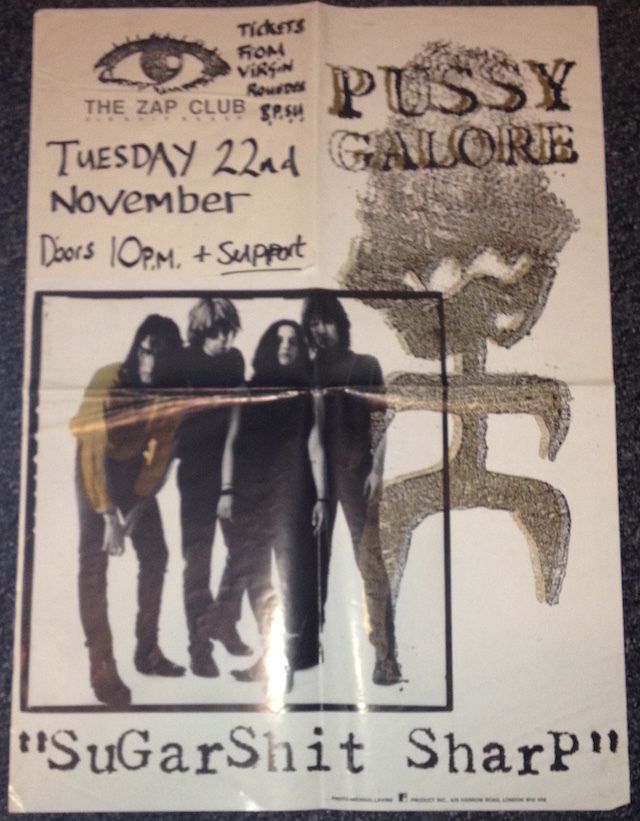
Jon Spencer went on to do a bunch of stuff that has made a bunch of people happy, and also wrote “History of Lies,” a song which I think is, despite that goddamn vocal affectation, about as good a song as a song can reasonably be expected to be. He and Cristina Martinez went on to form Boss Hog, a very fine indeed (and conanonically noise rock) band in its own right. Bob Bert went on to be in every single New York band except Murphy’s Law, but is currently in both Lydia Lunch’s Retrovirus and The Wolfmanhattan Project with Mick Collins and Kid Congo Powers. Both bands rule. Neil Michael Haggerty went on to be in Royal Trux who I Have Officially Never Quite Got But I Respect Their Steez. Finally, Pussy Galore’s co-founder Julia Cafritz would go on to do a ton of sick shit. Most notably to the world at large, she was in Free Kitten with Kim Gordon and Yoshimi from Boredoms. Most notably to me, she wrote three of the best songs on an album with zero bad songs, the first album by the punk rock and roll band Action Swingers. Wall to wall hits I assure you, and Cafritz’s “Funky Manc” is easily the best/meanest/only song ever written about Bez from The Happy Mondays.
9. Cherubs The word “mournful” wasn’t something often associated with noise rock. It was always too angry and/or detached to cry. The genre may be a lot of things, but it’s just not really “staring out the window on a rainy day” music. Unless it’s the Austin, Texas psychedelic nightmare band, Cherubs. Maybe it’s the creeping static, minor chord guitars. Maybe it’s the interspacials going in and out of the songs on their finest moment, Heroin Man, like a radio left on overnight in the ICU. Maybe it’s the way one or both singers operate in the key of Kurt Cobain’s voice cracking, and never leave it (in fact, if you ever dreamed of an In Utero where every song was “Scentless Apprentice,” Heroin Man might be your new favorite album). And maybe it’s just how Cherubs sound like Unsane playing a whole head of hair slower, leaving all the time in the world to think about the families of all those bodies on the early Unsane album covers. Or maybe Cherubs are just emotionally resonant motherfuckers. Whatever the reason, Cherub’s music attains a meditative sense of loss unusual for the genre. It probably helps that most of the band’s lyrics are indecipherable. Boy will I be embarrassed when it turns out all the songs are about eating hotdogs and winning the lottery.
The band put out a few records on Trance Syndicate, broke up for ten years, and came back to universal acclaim. Metal fans love ‘em and if you’re wondering who to blame for your favorite longhairs deciding to sample glass breaking instead of practicing their Manowar scales, look no further. Not Cherubs’ fault tho, as far as I know.
10. Helmet The band that ruined everything. Drawing heavily from the downtown avant garde scene and Unsane’s guitar squall (and that band’s unfortunate propensity for baseball hats), Helmet put the noise into boxy riffs and talked about classical music in interviews, simultaneously codifying an inherently chaotic sound and paving the way for both the high minded self-seriousness of Rage Against The Machine and no-minded self-seriousness of Nu Metal. It’s debatable whether it was Page Hamilton’s art-metal combo or the Helmet-influenced hardcore band Snapcase that’s more responsible for the flat, popping poop snare sound prevalent in heavy music in the following decade, but there’s more than enough blame to go around. Helmet’s first two albums, 1990’s Strap it On and 1992’s Meantime, are pretty much impossible to listen to. They are also both pretty much perfect. In the same way that Led Zepplin is good because they sound like Jesus Lizard, Helmet is bad because they sound like Helmet, who were actually pretty good. In art, sometimes vibe and association weigh as heavily as the initial work. Kind of like how Artichoke Pizza is delicious but I never want it. Page and you can take it up with God.
11. Cop Shoot Cop I’ve told this story here before, but I’m going to do it again. The reason I moved to NYC is because, when I was about 15, I saw an article about Cop Shoot Cop in Alternative Press (this was before the magazine pivoted to Warped Tour deviants and metalcore). In the single page profile, opposite an article about Sick Of It All, Tod A. was wearing his own band’s t-shirt, which depicted a photo of a handgun with “Piece Man” written underneath. I was, at that juncture, unaware of the gaucheness of wearing one’s own band shirt. So instead I fixated on how cool the shirt was, how cool its wearer was, and how positively, state-smashingly rebelliousness-ly cool the band’s album title, Consumer Revolt, was. Again, I was 15. You can imagine the kind of rapturous tingles I experienced on account of the band being called Cop Shoot Cop. It, like, meant two things and both of them were things I was very much interested in being interested in. I immediately went to Main Street Record in Northampton and bought Consumer Revolt. Then I listened to it until I liked it. Which, as the record is a barrage of clanging metal interspersed with shrill samples and beat poetry, and as my only understanding of industrial music was Ministry’s considerably more accesible Land of Rape and Honey, took more than a few listens. But I knew on a cellular level that the world that Cop Shoot Cop was embodying (in retrospect kind of petulantly bitching about) was a world I needed to live in. So I stayed with it. Even when my pleasure principle just wanted to listen to my Cypress Hill cassette. And Eventually, buddy, I got there. And then I moved to New York. Cop Shoot Cop and Nick Cave were my two formative artists. Apologies to literally every single person who had to deal with me between the ages of 16 and 36.
Now, listening to Cop Shoot Cop is a bit weird. I can hear the enormous influence of early JG Thirwell, in everything from the clamorous arrangements to the bad boy melodrama. And, while understanding the big bad city self-romanticising tradition of self-negation that they were written in, I very much wince at some of the provocative/idiotic lyrics on the first record. So much so that, despite my affection for the duel-bass throbbing and the gothically building dynamics (and except for two exceedingly bad lines, Tod A.’s otherwise entertaining wiseguy goonishenss), I’m going to strongly suggest that the curious listener starts with the second record, White Noise, an album that is as musically excellent as Consumer Revolt while being both catchier and (title notwithstanding) having exactly zero problematic lyrics.
Also, it appears that, according to Wikipedia, Cop Shoot Cop are technically an “Industrial Rock” band more than a “noise rock” band. Well. to that point… My mother's mother, as just a young woman of barely twenty, fled Austria as her country fell, in part willingly, to the Third Reich. She, using methods only hinted at in family lore, had to escape Nazi controlled prison and cross the mountains to gain access to a plane that might take her to America, a country where she knew few words of the language and knew even fewer people.
My grandmother died when I was still a teanager. We were not close before that.
But, still, I feel confident saying that Else Harris (the last name she took when she married my grandfather) did not flee the soul numbing atrocity and wholsale genocide of Europe so that her grandson, living as a middle aged man in one of the most sophisticated and diverse cities, in the vastly wealthy and ammoral country my grandmother fled to, should care about, or even know, the difference between “Industrial rock” and “noise rock.” So, out of respect, let’s not worry about it. Anyway, by the time Cop Shoot Cop’s third album rolled around, half the noise rockers in New York were switching over to Klezmer and Tom Waits cosplay, and Cop Shoot Cop were just groovy enough to get on MTV (if not stay there).
(fwiw both Cop Shoot Cop gypsy punk offshoot bands, Motherhead Bug and Firewater, were certified hoots and a half.)
As a side note, the rapper Elucid (one half of Armand Hammer and a noted composer of various noise musics) has a song, from his 2011 EP, called “Cop Shoot Cop.” Though Elucid can be oblique, the song’s lyrics do not, as far as I can tell, have even the slightest thing to do with the band. But Elucid name drops Swans in interviews and the man’s ties to NY Eye and Ear Control types goes as deep as the crazily underappreciated New Kingdom, and presumably deeper. So... maybe!

EDIT/UPDATE I am an admittedly flawed human person. I make mistakes like anyone else. Overall, the response to this essay has been exceedingly kind (only a couple people, perhaps reasonably, called it "confused" and only one cretin cretinously called Surgery "pedestrian.") but there has been one oversight that has infuriated nearly everyone... U.S. Maple. And though U.S. Maple are scampish deconstructers of the blues and rock idioms and I (clearly) have a bias towards the idiotically brutalist end of the noise rock spectrum, the Chicago band's ommission was indeed egregious and incorrect. I apologize to both them and you.
Other bands that got multiple "you forgot so-and-so, you fuck" votes were Distorted Pony and Slug, two bands I actually wasn't familiar with. Both are quite good.
Thanks for reading. If you did. Which, as we’ve passed the 6,000 word mark, would be insane. You must really love noise rock.
Which is a good thing, because here’s some more!
20 Current Artists That May Or May Not Be Noise Rock (If Only Because Nothing Is) But Who Are Really Great And, Were I To Be Asked To Curate A New Dope, Guns, and Fucking In The Streets Comp, I Would Pick Them All To Be On It (And It Would Be Both Somewhat Aesthetically Consistant With The Old Comps And Would Also Be Hella Sick) (yes, this list is the new canon so be absolutely sure to get and stay mad*)
*This list is absolutely not canon. If you or your favorite noise band is not on it, please don’t fret. It’s just noisy music I enjoy, by artists still making noisy music, that I could immediately think of after writing 6,000 words about a briefly popular subgenre of a subgenre from the 1990s. Would make a pretty good comp tho...
OK THANK YOU BYE
